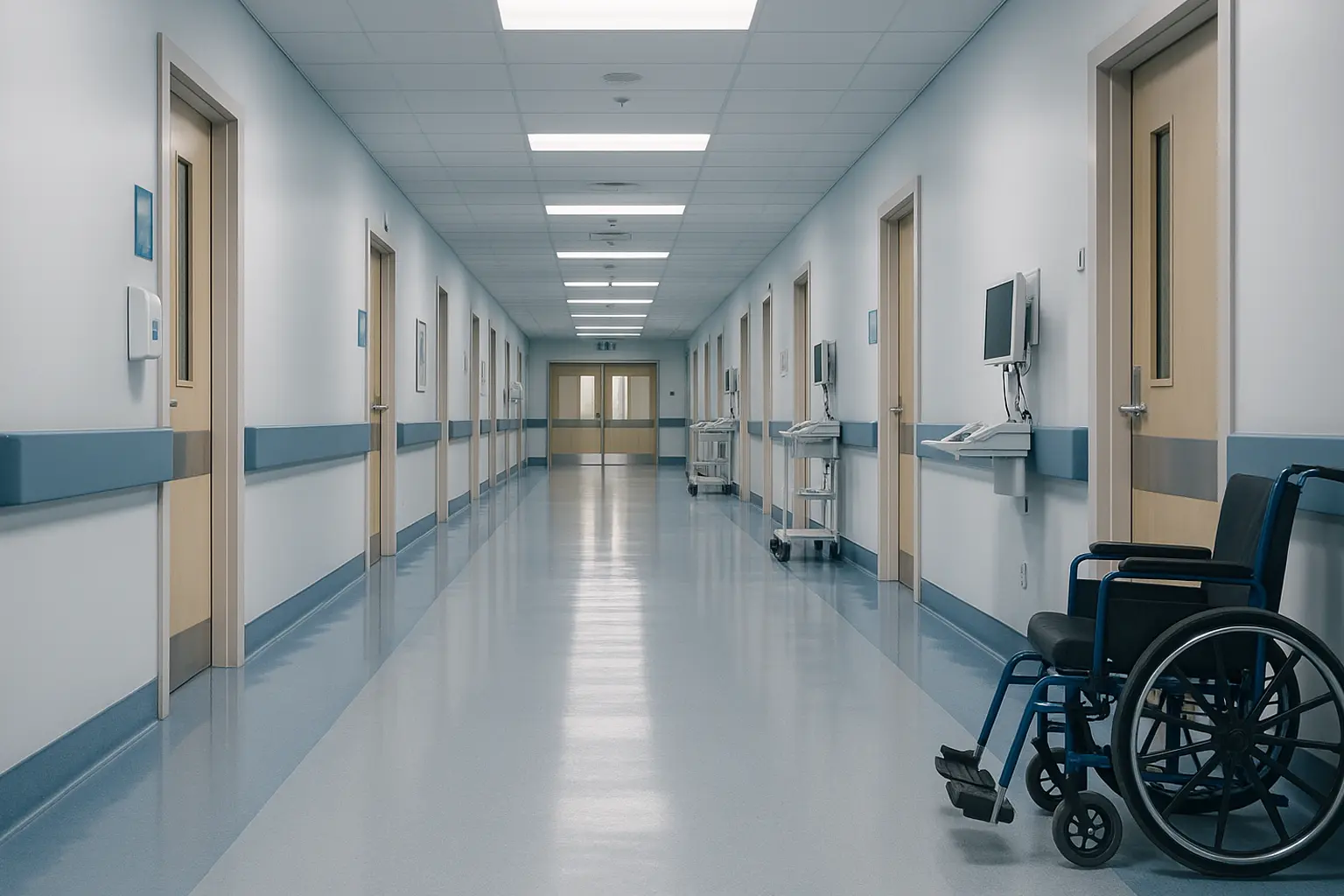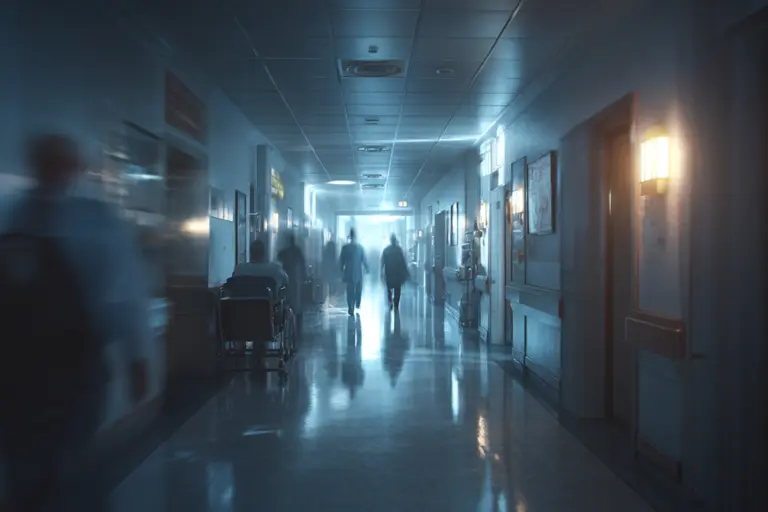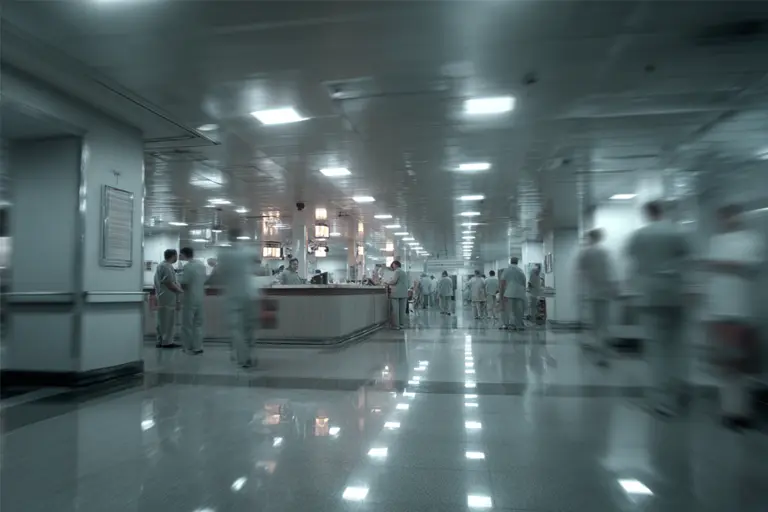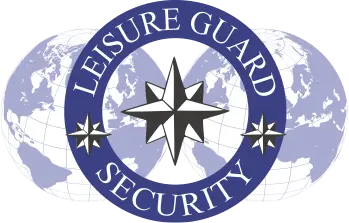Hospitals and healthcare facilities are designed to be places of healing and support, but they are also some of the most challenging environments to secure. Unlike office buildings or retail spaces, hospitals operate on an open-door, 24/7 basis, welcoming thousands of people each day. Patients arrive in distress, visitors often feel heightened emotions, and staff are working under intense pressure. Add in the presence of high-value assets such as pharmaceuticals, medical equipment, and sensitive patient data, and it becomes clear why hospitals face such unique security challenges.
Unfortunately, these pressures have contributed to a sharp rise in incidents of violence and aggression in healthcare settings. According to NHS figures, there are tens of thousands of reported assaults on staff every year, with front-line workers in Accident & Emergency departments, mental health wards, and reception areas most at risk. These incidents don’t just affect staff safety, they also compromise patient care, delay treatment, and damage public confidence in healthcare institutions.
This is where professional healthcare security guards play a critical role. Far from being just “guards at the door,” hospital security officers are trained professionals who provide a vital layer of protection in an unpredictable and emotionally charged environment. They combine the skills of traditional manned guarding with specialist healthcare knowledge, acting as deterrents, first responders, and partners to clinical staff.
Healthcare security guards are responsible for:
- Protecting staff from aggression, intimidation, and violence.
- Safeguarding patients – including children, elderly individuals, and vulnerable adults.
- Preventing theft and fraud involving medicines, equipment, or patient property.
- Managing access control to restricted areas such as pharmacies and intensive care units.
- Supporting emergency response in critical incidents, evacuations, or public health emergencies.
In this article, we will explore in depth the role of healthcare security officers, examining how they protect both staff and patients, the specialist training they require, and the measurable benefits they bring to hospitals. By understanding their impact, it becomes clear that hospital security services are not simply a matter of compliance, they are a cornerstone of safe, efficient, and trusted healthcare delivery.
Why Hospitals Need Security Guards
Hospitals and healthcare centres are among the most complex environments to protect. They must remain open and accessible 24/7, while also safeguarding some of the most vulnerable members of society. Unlike other industries, healthcare cannot simply “close its doors” or restrict entry, patients, families, and emergency cases arrive at all hours of the day and night. This constant flow of people creates security challenges that require trained professionals, not just CCTV or access cards.
A Unique Risk Landscape
Healthcare environments combine several risk factors that make them particularly challenging:
- Public Access: Hospitals cannot operate like secure office buildings. A&E departments especially are open to anyone, including distressed, intoxicated, or aggressive individuals.
- Vulnerable Populations: Children, elderly patients, mental health service users, and people in crisis require additional safeguarding.
- High-Value Assets: Medicines, controlled substances, IT systems, and surgical equipment are valuable targets for theft and fraud.
- Emotional Environments: Tension, grief, and long waiting times often increase the likelihood of conflict or violence.
- Staff Under Pressure: Doctors, nurses, and frontline staff cannot be expected to handle aggressive or disruptive behaviour while delivering medical care.
Key Reasons Hospitals Employ Security Guards
Protecting Healthcare Staff
- Security officers provide a visible deterrent to violence and support staff during confrontations.
- NHS staff report feeling safer and more confident when trained officers are present.
Safeguarding Patients
- Guards help protect vulnerable individuals from harm or exploitation.
- They ensure only authorised visitors gain access to sensitive wards.
Preventing Theft and Fraud
- Professional security reduces losses from stolen medication, medical devices, or patient belongings.
- Access-controlled areas are monitored and protected against misuse.
Supporting Emergency Response
- In emergencies, guards assist with evacuations, lockdowns, and crowd management.
- They liaise with police, fire, and ambulance services to ensure rapid action.
Maintaining Public Confidence
- A secure environment reassures patients and visitors.
- Professional security shows the hospital is proactive about safety.
Why it matters
Without professional hospital security guards, frontline staff are left exposed, patients may feel unsafe, and valuable assets remain at risk. Security officers are not a luxury, they are an essential part of modern healthcare, ensuring that hospitals remain both safe and welcoming environments.
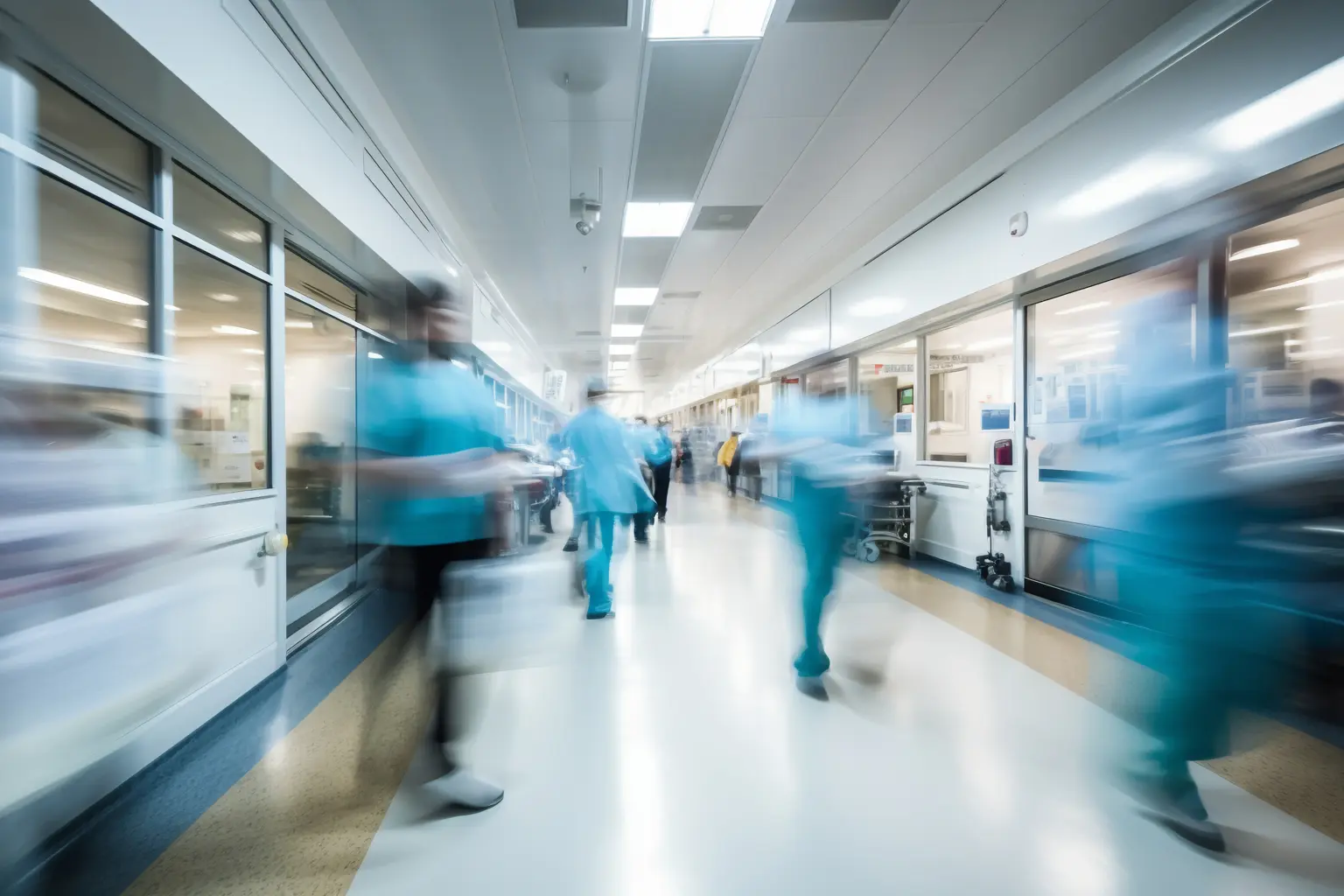
Core Duties of Healthcare Security Guards
The role of a healthcare security guard goes far beyond standing at an entrance. In hospitals, security officers act as the first line of defence against threats while also supporting staff and reassuring patients. Their duties require a careful balance of authority, empathy, and professionalism.
Daily Responsibilities
Healthcare security officers are typically responsible for:
- Access Control & Visitor Management – monitoring entrances, issuing passes, and ensuring only authorised visitors enter restricted areas such as pharmacies, ICUs, or surgical theatres.
- De-escalating Aggression & Preventing Violence – responding quickly to conflicts in A&E departments, waiting rooms, or wards, and using conflict resolution skills to calm situations.
- Safeguarding Patients – protecting children, elderly patients, and individuals at risk of harm, including those with mental health challenges.
- Protecting Assets – preventing theft of medicines, medical devices, IT systems, and patient property.
- Supporting Staff – providing a visible deterrent, escorting staff when required, and ensuring frontline workers feel supported.
- Emergency Response – assisting during fire alarms, evacuations, lockdowns, or mass-casualty events.
- Reporting & Documentation – creating clear, auditable reports for NHS Trusts, private hospitals, insurers, and regulatory inspections.
Daily Duties of a Healthcare Security Guard
| Duty | Example Task |
|---|---|
| Access Control & Visitor Management | Checking IDs, issuing visitor passes, restricting entry to sensitive areas |
| De-escalating Aggression | Calming disputes in A&E waiting rooms or wards |
| Safeguarding Patients | Monitoring vulnerable individuals and preventing unauthorised access to wards |
| Protecting Assets | Preventing theft of medicines, equipment, and patient property |
| Supporting Staff | Escorting staff to car parks during night shifts |
| Emergency Response | Assisting with evacuations, lockdowns, or coordinating with police |
| Reporting & Documentation | Writing incident reports, maintaining security logs for audits |
Why it matters
Healthcare security guards do far more than watch over doors. They provide a multi-layered safety net, protecting staff, patients, and assets while helping hospitals remain safe, compliant, and welcoming. Their role underpins the entire healthcare environment.
How Healthcare Security Guards Protect Staff
Healthcare workers face some of the highest levels of workplace violence and aggression in the UK. According to NHS figures, tens of thousands of incidents are reported every year, with frontline staff in A&E departments, reception areas, and mental health wards most at risk. Staff are expected to deliver care under extreme pressure, but they cannot be expected to manage violent or abusive behaviour alone.
This is where healthcare security guards provide essential support. By being both a visible deterrent and a trained first responder, hospital security officers protect staff and allow them to focus on what they do best: patient care.
Ways Security Guards Support Healthcare Staff
- Visible Deterrence – The presence of a uniformed officer reduces aggression and reassures staff in high-risk zones like A&E.
- Conflict De-escalation – Guards are trained to calm situations before they escalate, reducing the likelihood of assaults or injuries.
- Body-Worn Cameras – Officers equipped with cameras discourage aggression, while recordings provide evidence if incidents occur.
- Rapid Response – Security teams can react quickly to incidents, preventing delays in treatment caused by disruptive behaviour.
- Supporting Lone Workers – Guards provide protection for staff on night shifts or those working in isolated parts of the hospital.
- Police Liaison – Security officers work closely with local police, ensuring serious incidents are escalated swiftly and handled appropriately.
Risks to Staff vs Security Guard Protection
| Risk to Staff | How Security Guards Help |
|---|---|
| Verbal abuse from patients/visitors | Trained de-escalation and calming techniques; visible presence deters further escalation. |
| Physical aggression | Immediate intervention to protect staff from harm; safe, compliant response. |
| Threats during night shifts | Regular patrols of car parks and secluded areas; safe staff escorts to vehicles. |
| False accusations | Body-worn camera footage provides clear evidence and protects staff reputation. |
| Stress and low morale | Reassuring presence reduces anxiety and allows clinical teams to focus on care. |
Why it matters
When staff feel safe, they can work with confidence and compassion. Professional hospital security guards don’t just prevent violence, they also protect morale, reduce stress, and improve staff retention. In healthcare, where recruitment and retention are constant challenges, security is as much about supporting staff wellbeing as it is about preventing crime.
How Security Guards Protect Patients
While protecting staff is essential, the primary mission of hospitals is patient care, and security plays a direct role in keeping patients safe. Hospitals serve some of the most vulnerable groups in society: children, elderly individuals, those with disabilities, and patients experiencing mental health crises. Security officers are responsible for creating a safe and reassuring environment where these individuals can receive care without fear of harm, exploitation, or disruption.
Healthcare security guards don’t just respond to visible threats, they also play a preventative and safeguarding role, often spotting risks before clinical staff are even aware of them. From preventing unauthorised access to sensitive wards, to supporting safeguarding procedures, their role in patient safety is as important as their role in staff protection.
Ways Security Guards Protect Patients
- Safeguarding Support – Officers are trained to identify and respond to risks affecting vulnerable adults, children, or those in crisis.
- Preventing Unauthorised Access – Guards control entry to restricted areas such as maternity wards, ICUs, and paediatric units.
- Reducing Patient-on-Patient Conflict – Security officers intervene quickly in situations where patients may be at risk from others.
- Supporting Mental Health Care – Trained guards can calmly assist with patients experiencing behavioural crises.
- Reassurance Through Presence – A visible, professional security presence helps patients and families feel safe.
Patient Risks vs Security Guard Response
| Patient Risk | Security Guard Response |
|---|---|
| Unauthorised visitor in a ward | Monitor and restrict access; escort intruders out safely and professionally. |
| Vulnerable patient at risk of harm | Immediate safeguarding action; escalate concerns to clinical staff and safeguarding lead. |
| Aggressive patient behaviour | Use de-escalation techniques and safe intervention to protect others. |
| Child protection concerns | Ensure only authorised guardians gain access; report and record suspicious activity. |
| Mental health crisis | Support staff with calm, non-confrontational intervention to reduce escalation. |
Why it matters
Patient safety is the foundation of trust in healthcare. Hospitals are judged not only on clinical outcomes but also on how secure and reassuring they feel. Professional healthcare security guards ensure patients can receive treatment in an environment that is calm, controlled, and free from preventable risks.
Healthcare Security Starts with a Conversation
Let’s protect your hospital, with elegance, intelligence, and total discretion.
Schedule a confidential consultation with our team today. We have many years experience providing security services within hospitals all over the UK, and we’re ready to help you with yours.
Specialist Training for Healthcare Security Guards
Working in healthcare requires far more than a standard security licence. While all officers must be SIA-licensed, hospitals demand specialist training to deal with the unique risks in medical environments. Guards must be capable of protecting staff and patients while also demonstrating empathy, discretion, and professionalism.
Unlike retail or corporate guards, healthcare security officers face unpredictable, emotionally charged situations every day. From managing aggression in A&E to safeguarding a child on a ward, the role requires specialist knowledge and continuous training.
Essential Skills for Healthcare Security Guards
- Conflict Resolution & De-escalation – Trained techniques to calm situations without force.
- Safeguarding Awareness – Understanding policies for protecting children, elderly patients, and vulnerable adults.
- Mental Health Awareness – Skills to support patients in crisis with sensitivity.
- First Aid Training – Immediate assistance in emergencies before clinical staff arrive.
- Physical Intervention (when permitted) – Safe restraint methods, used only as a last resort.
- Legal & Regulatory Knowledge – Compliance with NHS, CQC, and safeguarding standards.
- Customer Service & Empathy – Balancing authority with compassion to reassure patients and families.
Core Skills Healthcare Security Guards Need
| Skill | Why It Matters |
|---|---|
| Conflict Resolution | Prevents violence without resorting to force, keeping staff and patients safe. |
| Safeguarding Awareness | Protects vulnerable groups and ensures compliance with safeguarding legislation. |
| Mental Health Awareness | Improves interactions with patients in crisis, reducing escalation risks. |
| First Aid | Provides immediate support in emergencies before clinical staff intervene. |
| Physical Intervention | Enables safe, compliant action if de-escalation fails, protecting all involved. |
| Legal & Regulatory Knowledge | Ensures compliance with NHS, CQC, and safeguarding standards, reducing liability risks. |
| Customer Service & Empathy | Creates a safe, welcoming atmosphere for patients, visitors, and staff. |
Why it matters
In healthcare, security officers are more than guards, they are part of the care environment. Without specialist training, incidents can escalate unnecessarily, putting lives and reputations at risk. Well-trained guards not only protect people and property but also contribute to a calmer, safer, and more reassuring hospital atmosphere.
Read our article: The Complete Guide to Hospital Security Services
Benefits of Professional Healthcare Security Services
When hospitals invest in professional healthcare security, the impact goes far beyond stopping theft or breaking up fights. Security becomes a strategic enabler, protecting people, supporting staff, and strengthening the hospital’s reputation.
Key Benefits for Hospitals & Clinics
- Safer Staff – Reduced violence and aggression leads to higher morale, lower stress, and better retention of frontline healthcare workers.
- Safer Patients – Vulnerable individuals are safeguarded, reassuring patients and families during their hospital stay.
- Reduced Theft and Fraud – Medicines, equipment, and IT assets are protected, saving hospitals significant costs.
- Improved Compliance – Security logs and incident reports support CQC inspections, NHS safeguarding requirements, and insurance claims.
- Operational Efficiency – Clinical staff can focus on delivering care instead of managing security problems.
- Lower Insurance Premiums – Proactive security can reduce liability exposure, leading to financial savings.
- Enhanced Reputation – Hospitals that feel safe are trusted more by their communities and seen as leaders in patient care.
Benefits of Healthcare Security Services
| Benefit | Impact on Hospitals |
|---|---|
| Safer Staff | Lower absenteeism, reduced turnover, and higher morale among healthcare workers. |
| Safer Patients | Greater trust from patients and families, with improved overall care experience. |
| Reduced Theft & Fraud | Protecting medicines, surgical equipment, and sensitive data saves hospitals significant costs. |
| Compliance Support | Strong audit trails help meet CQC inspection standards and support insurance protection. |
| Operational Efficiency | Staff focus on care rather than conflict, improving hospital performance and patient outcomes. |
| Lower Insurance Costs | Reduced claims and liabilities help cut insurance premiums and long-term risk exposure. |
| Stronger Reputation | Safe, secure hospitals build public trust and position themselves as reliable institutions. |
Why it matters
Security is not just about preventing crime, it’s about creating an environment where staff feel supported, patients feel safe, and the hospital is trusted. Professional healthcare security services protect not only lives and assets, but also the long-term sustainability and reputation of the institution.
Hospitals are some of the most demanding environments in the UK to protect. Open 24/7, full of vulnerable people, and housing valuable assets, they present a unique set of challenges that ordinary security measures cannot solve.
Healthcare security guards are not just an “extra pair of eyes”, they are highly trained professionals who:
- Protect staff from aggression and violence.
- Safeguard vulnerable patients.
- Prevent theft of medicines and equipment.
- Support clinical teams during emergencies.
- Strengthen compliance and reduce reputational risk.
Their presence helps staff work with confidence, reassures patients and families, and ensures the hospital itself can operate smoothly and safely. In many ways, healthcare security officers are as vital to hospital functioning as doctors, nurses, and administrators.
At Leisure Guard Security, we understand the unique demands of healthcare protection. Our SIA-licensed officers are trained in conflict resolution, safeguarding, mental health awareness, and compliance, giving hospitals the assurance that every risk is being managed with professionalism and care.
Healthcare Security Starts with a Conversation
Let’s protect your hospital, with elegance, intelligence, and total discretion.
Schedule a confidential consultation with our team today. We have many years experience providing security services within hospitals all over the UK, and we’re ready to help you with yours.
Hospital Security Services FAQs
What is the role of a hospital security guard in the UK?
A hospital security guard protects staff, patients, and assets by managing access, preventing theft, de-escalating aggression, and supporting safeguarding protocols.
Are healthcare security officers different from regular security guards?
Yes. Healthcare officers require specialist training in safeguarding, mental health awareness, and conflict resolution to handle sensitive medical environments.
Why are security guards important in hospitals?
They deter aggression, protect vulnerable patients, prevent theft of medicines and equipment, and support compliance with NHS and CQC standards.
How do healthcare security guards protect NHS staff?
By providing a visible deterrent, de-escalating aggressive behaviour, using body-worn cameras for evidence, and escorting staff safely during night shifts.
Do hospital security guards need special training?
Yes. Beyond the SIA licence, they are trained in safeguarding, conflict resolution, mental health awareness, first aid, and healthcare compliance.
How do security guards support patient safety in hospitals?
They prevent unauthorised access to wards, intervene in patient-on-patient conflicts, and support safeguarding measures for children and vulnerable adults.
What risks do healthcare workers face without security guards?
Risks include higher levels of violence, intimidation, theft of medicines and equipment, false accusations, and increased staff stress and burnout.
How do hospital security guards handle aggressive patients or visitors?
They use trained de-escalation techniques, safe intervention methods if necessary, and liaise with police when required.
Can hospital security guards help with safeguarding?
Yes. They are trained to identify safeguarding concerns, restrict ward access, and escalate cases to clinical staff and safeguarding leads.
Do healthcare security guards improve patient trust?
Absolutely. Patients and families feel safer when hospitals have visible, professional security, which improves confidence in the care environment.
How do hospital security services support compliance?
Professional guards provide incident logs, audits, and evidence that help meet NHS and CQC inspection requirements and protect against liability.
What are the benefits of outsourcing hospital security services?
Outsourcing ensures consistent training, flexibility to scale staff, access to modern technology, and accountability through service-level agreements (SLAs).
